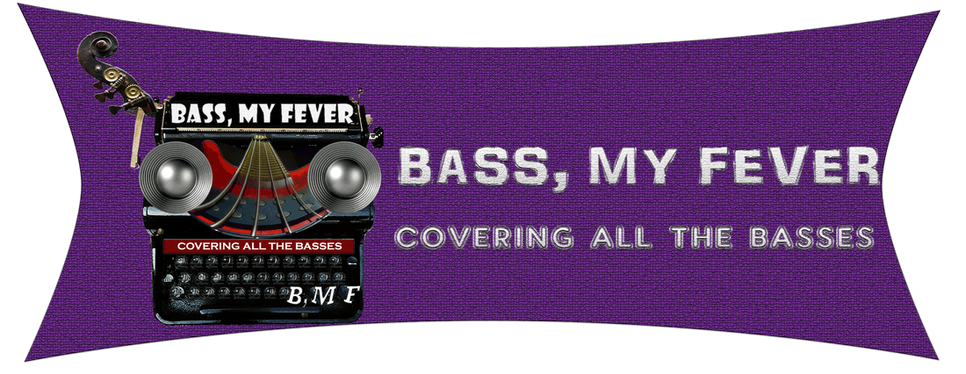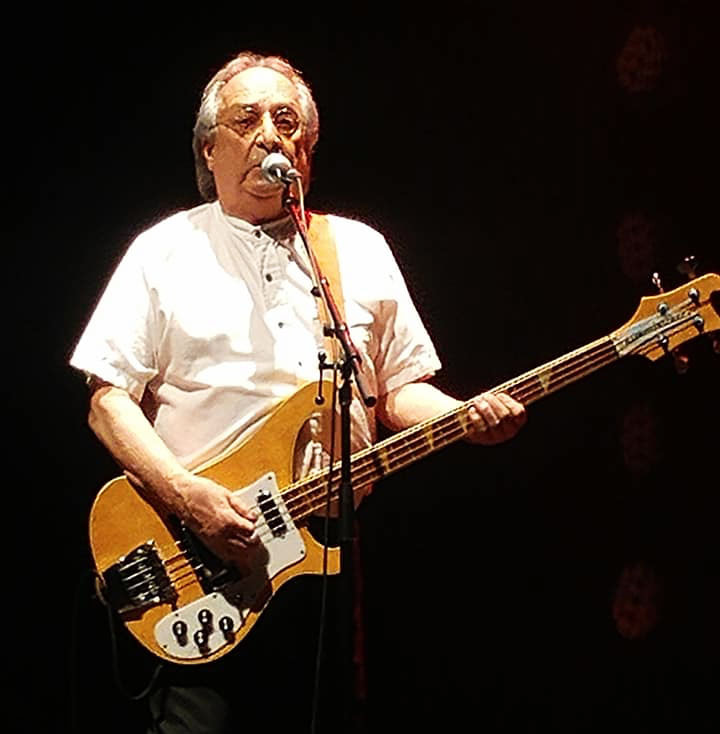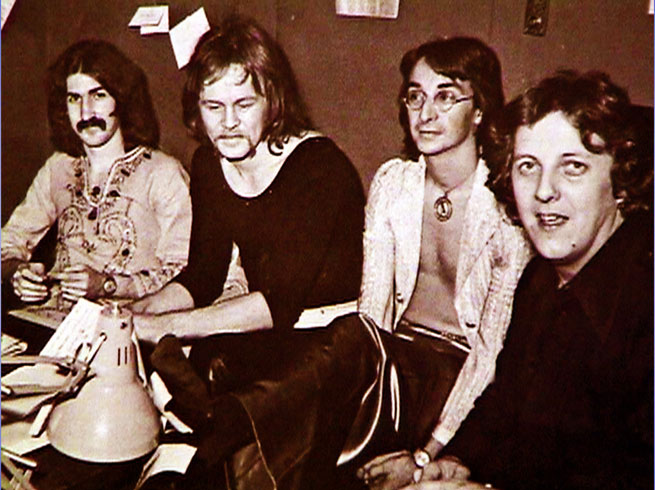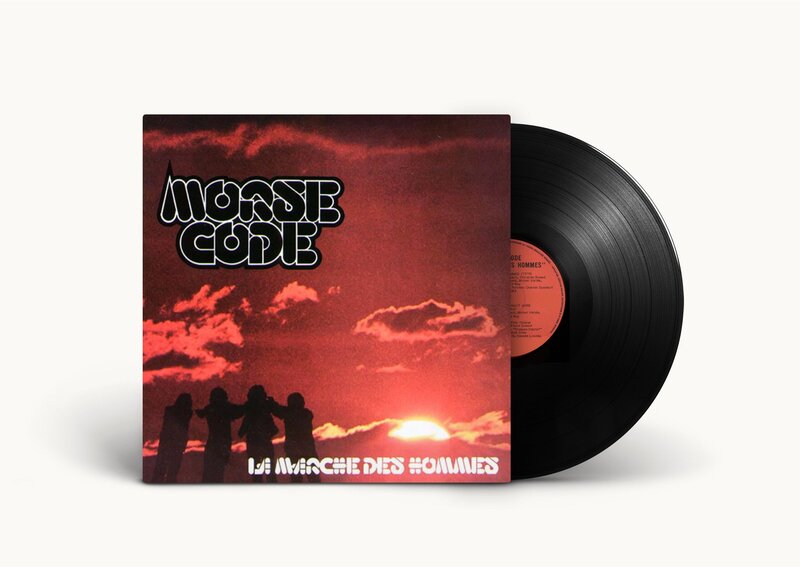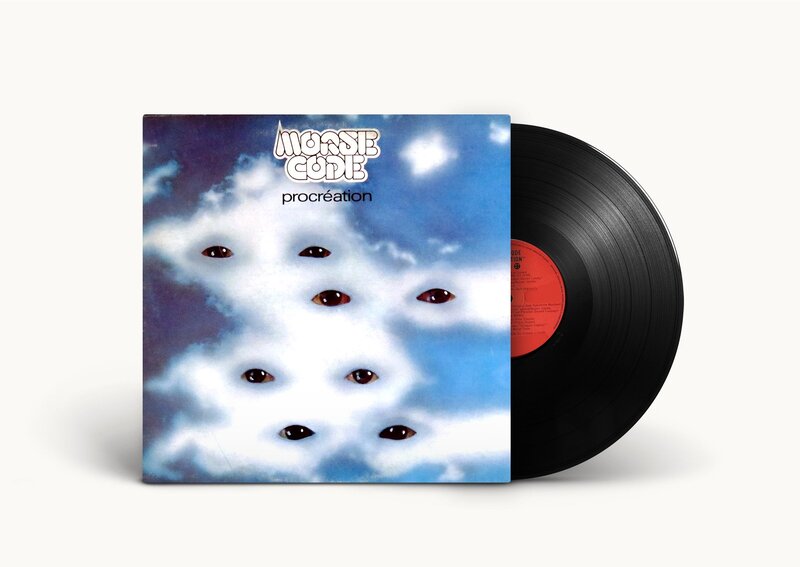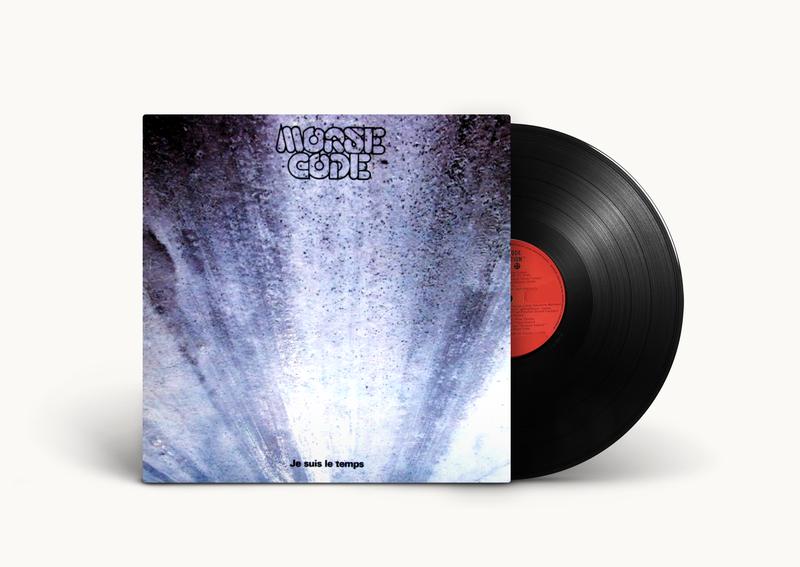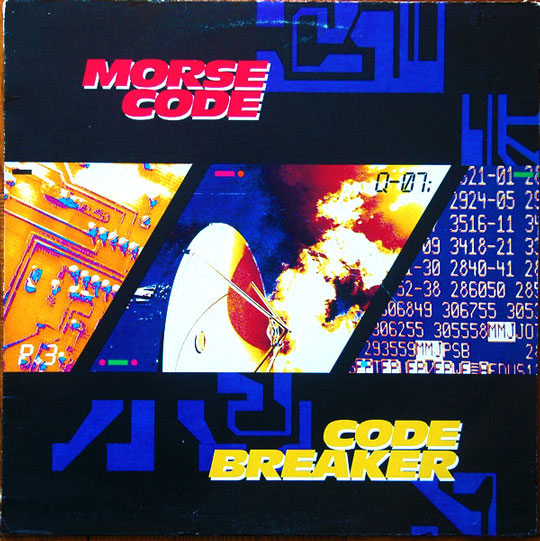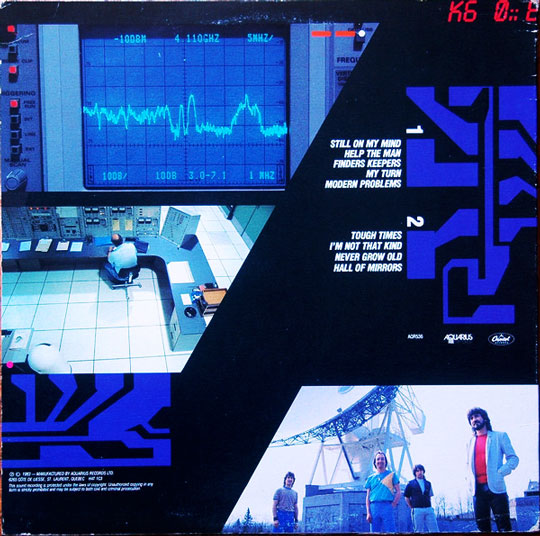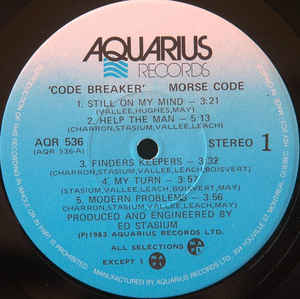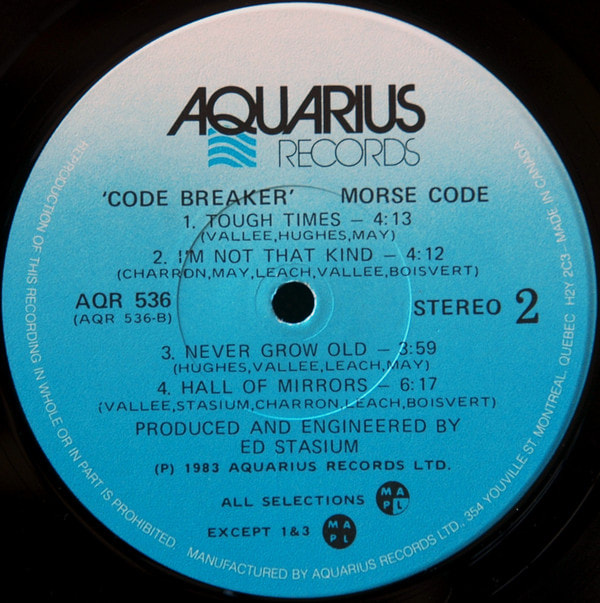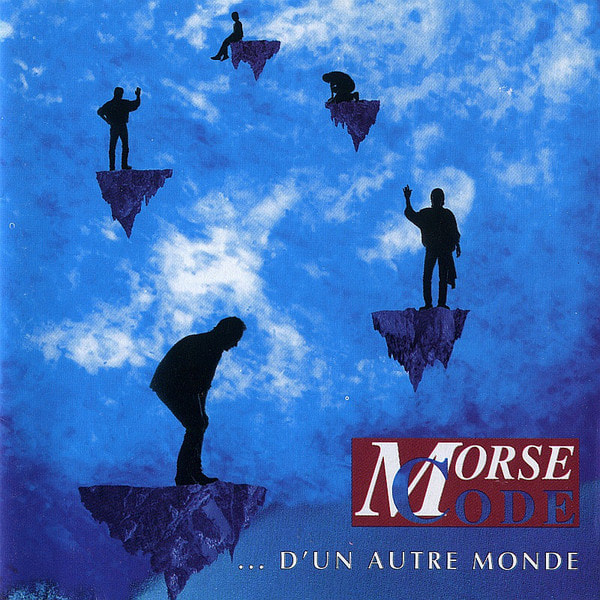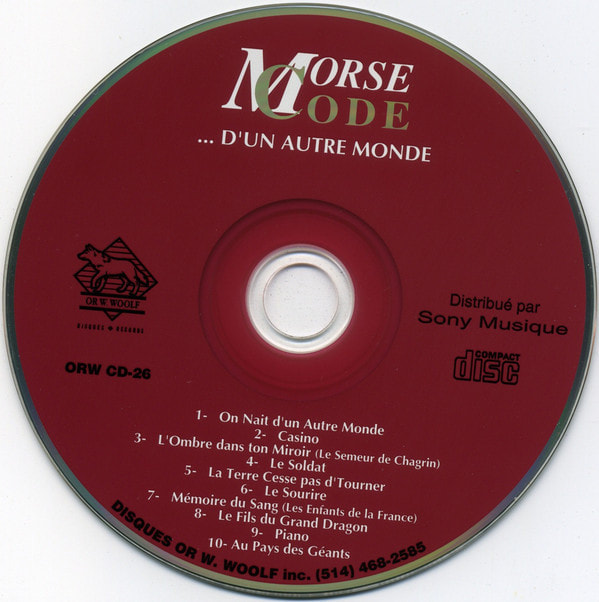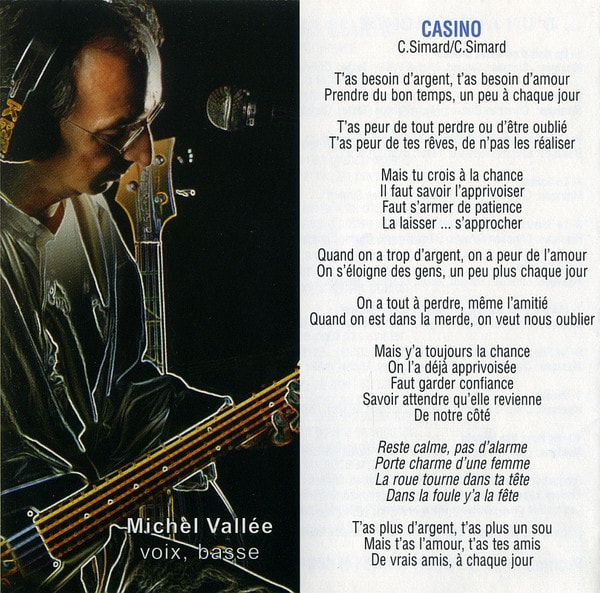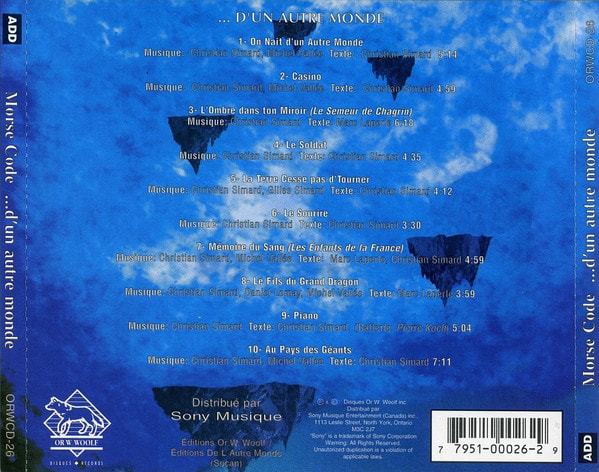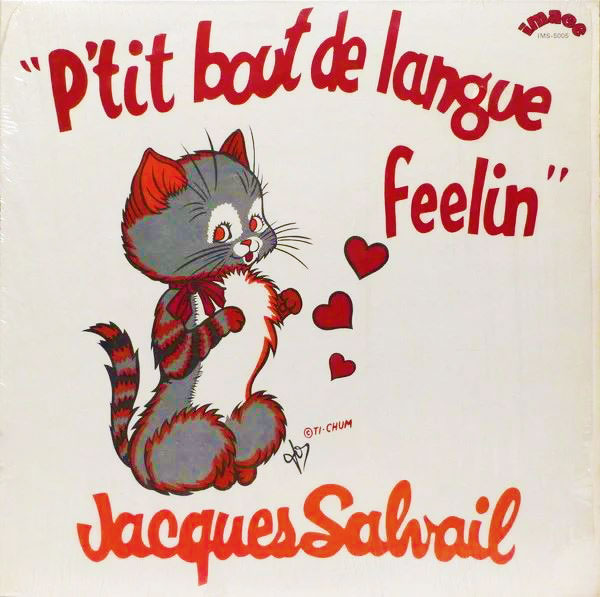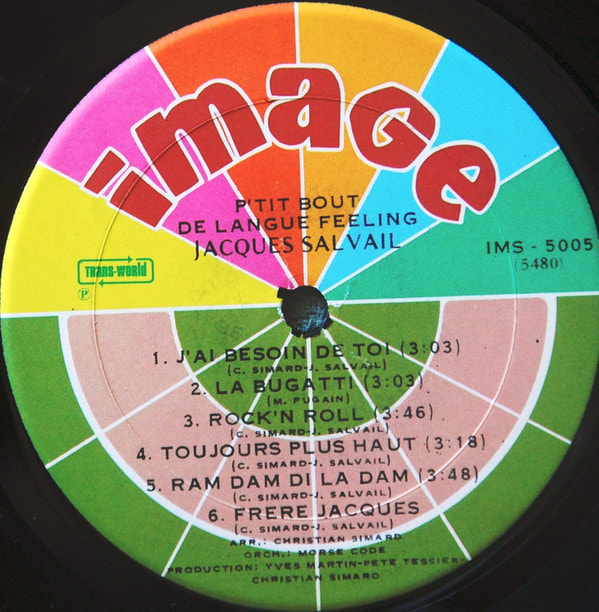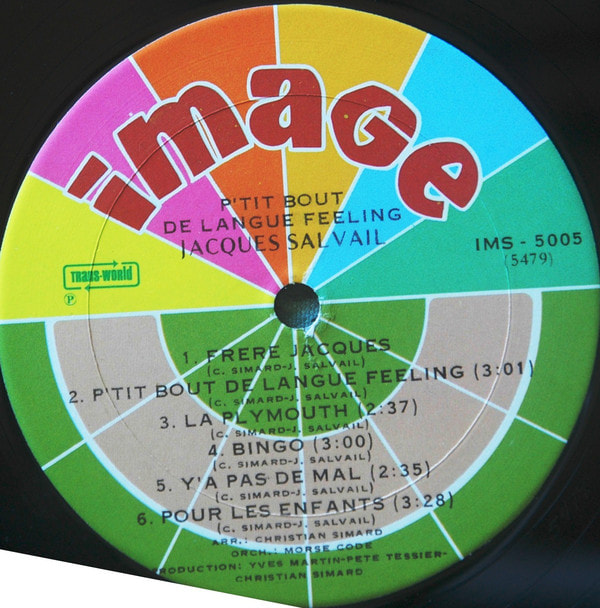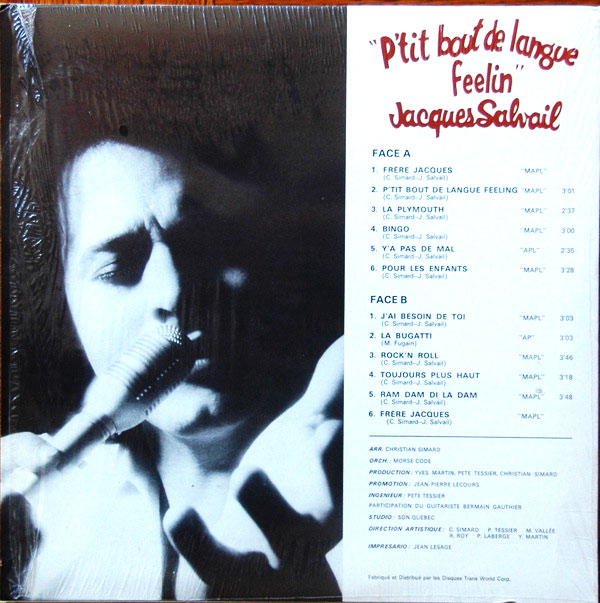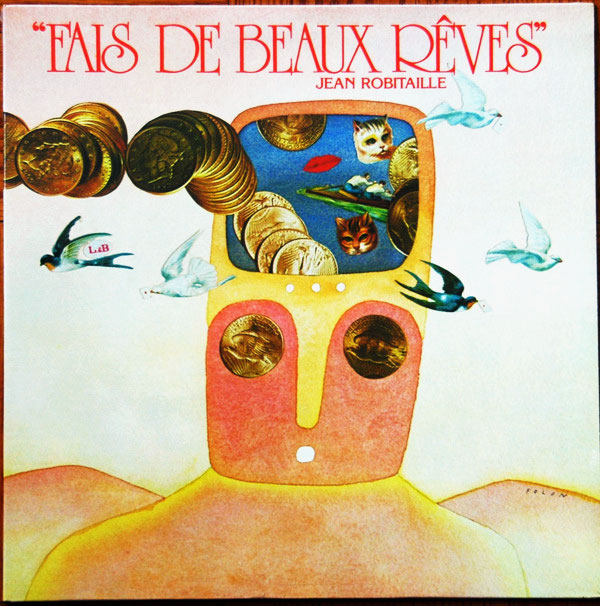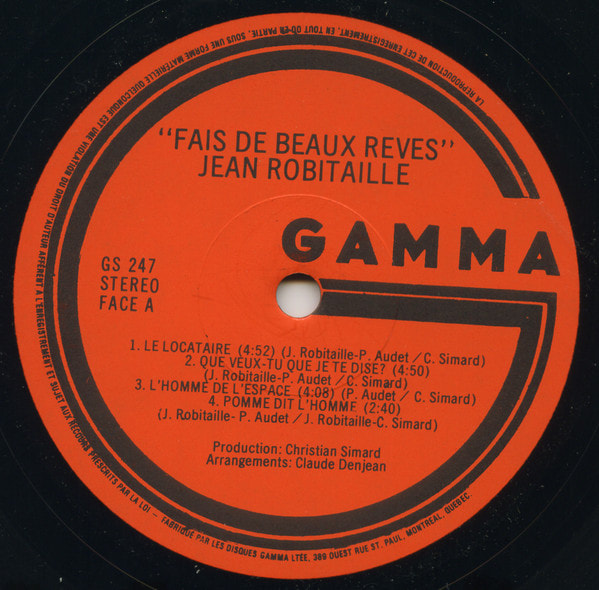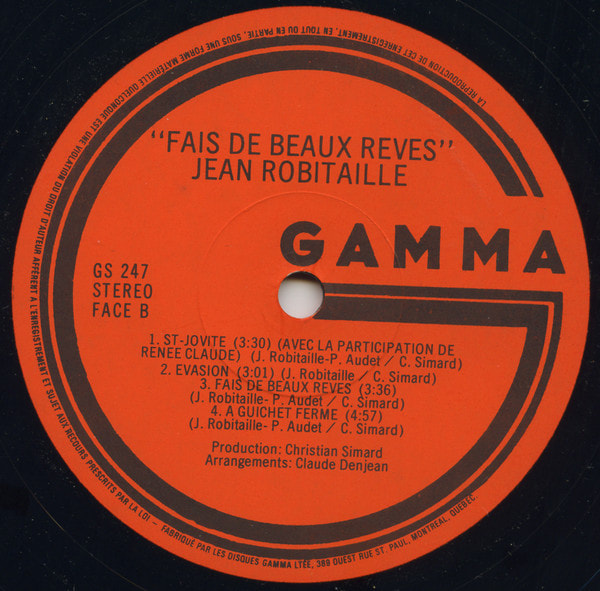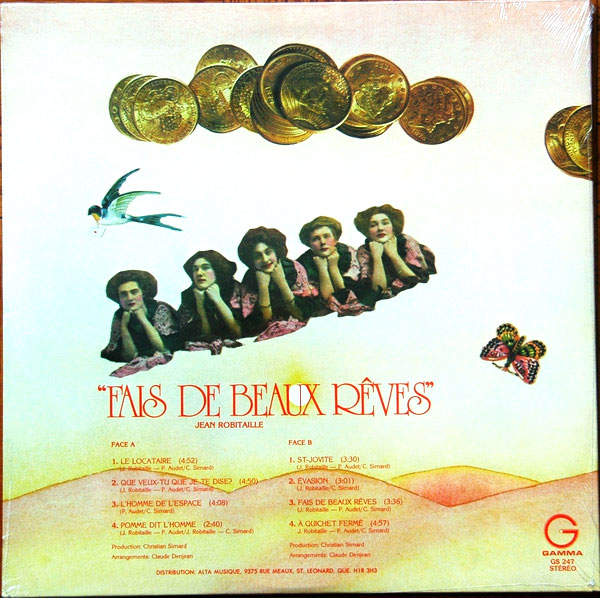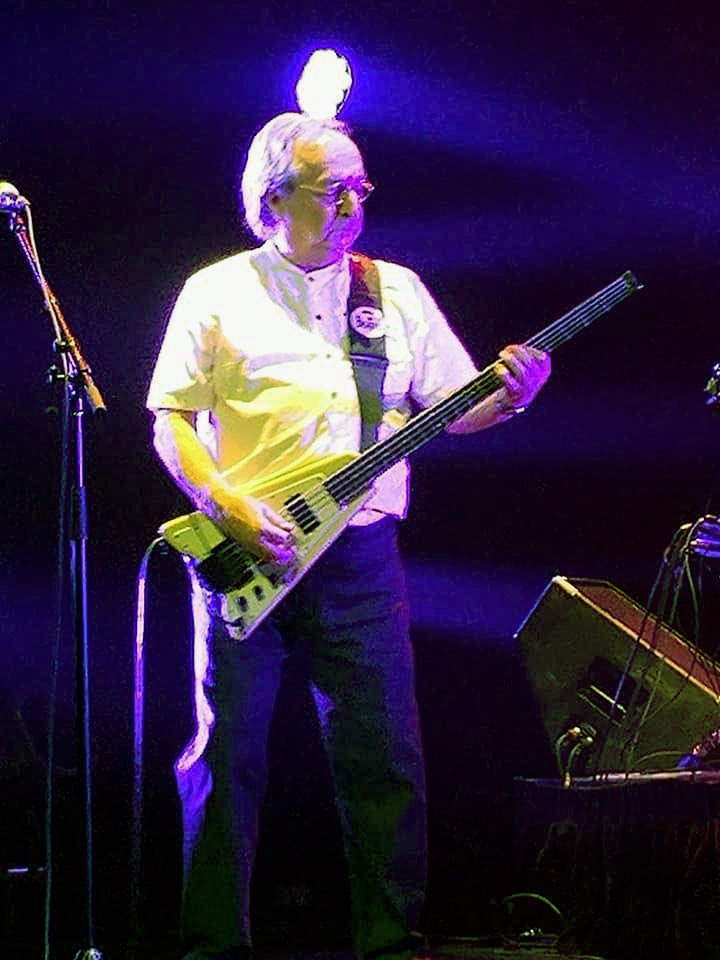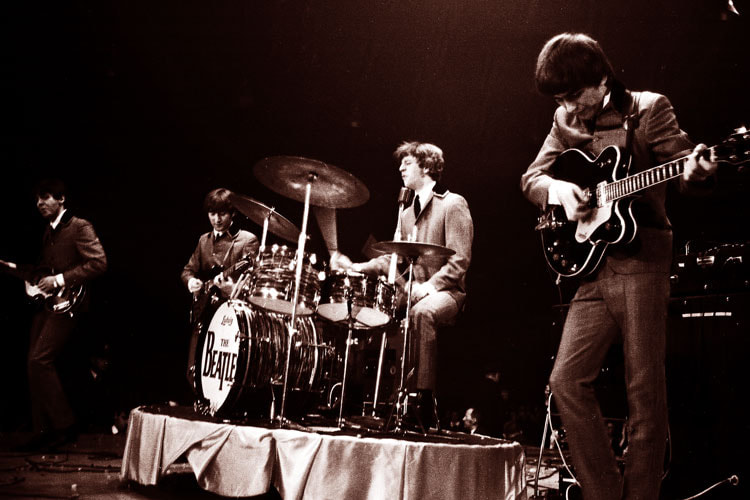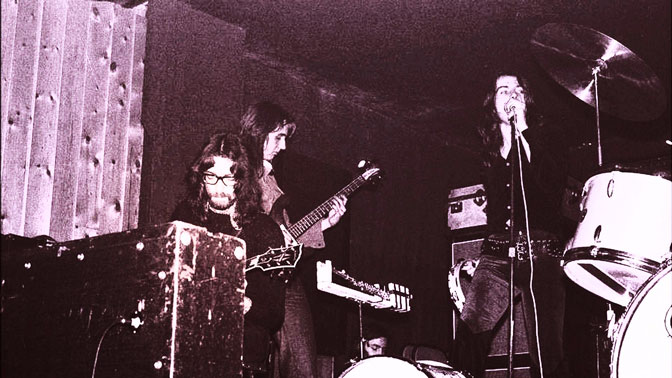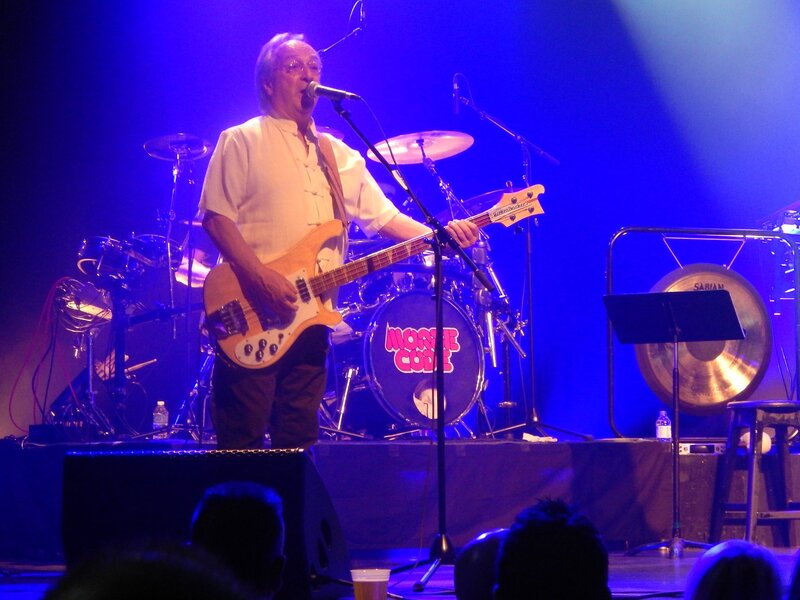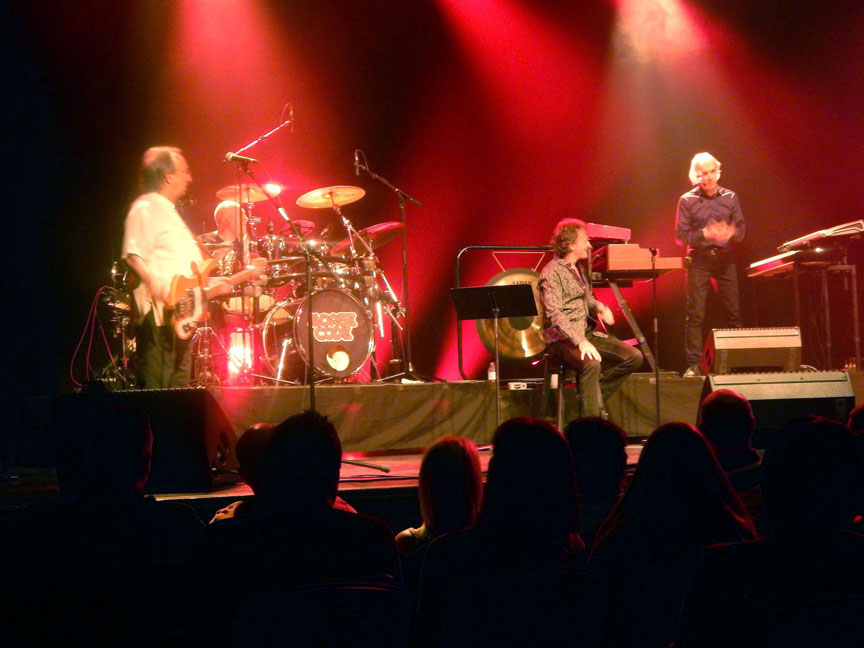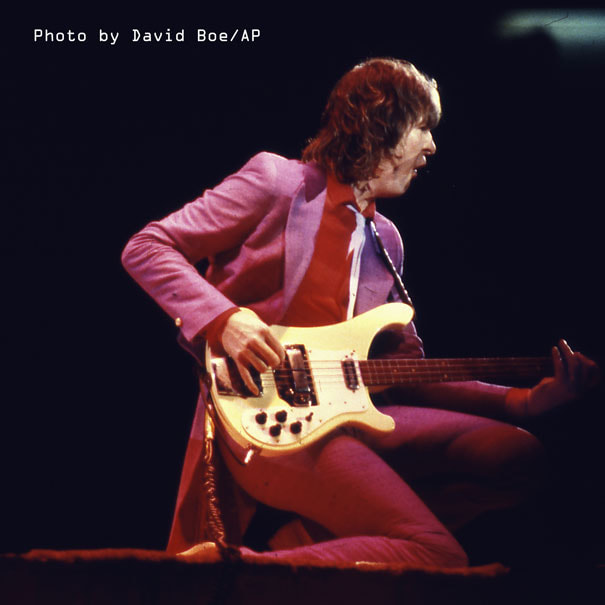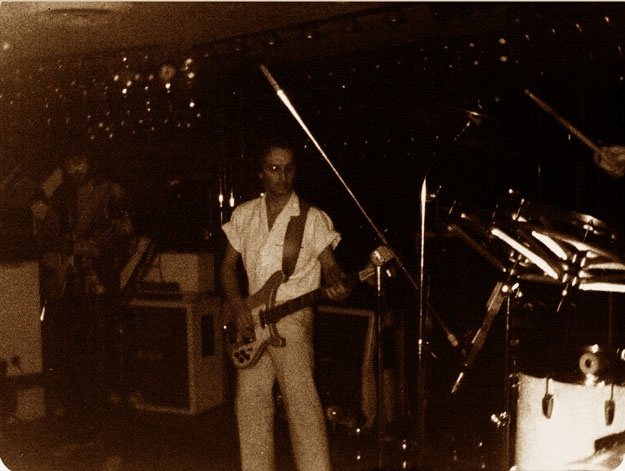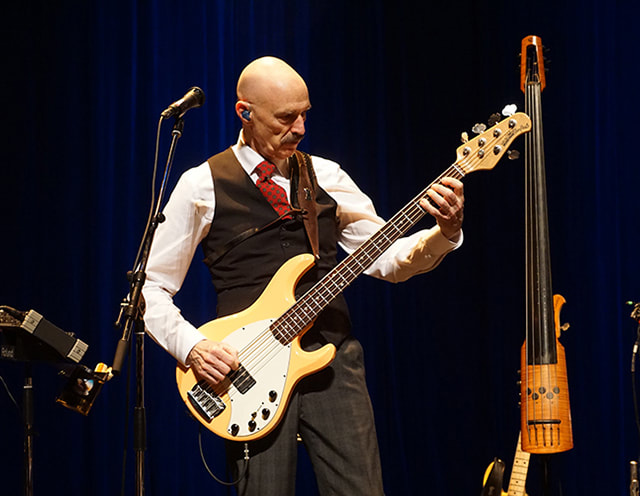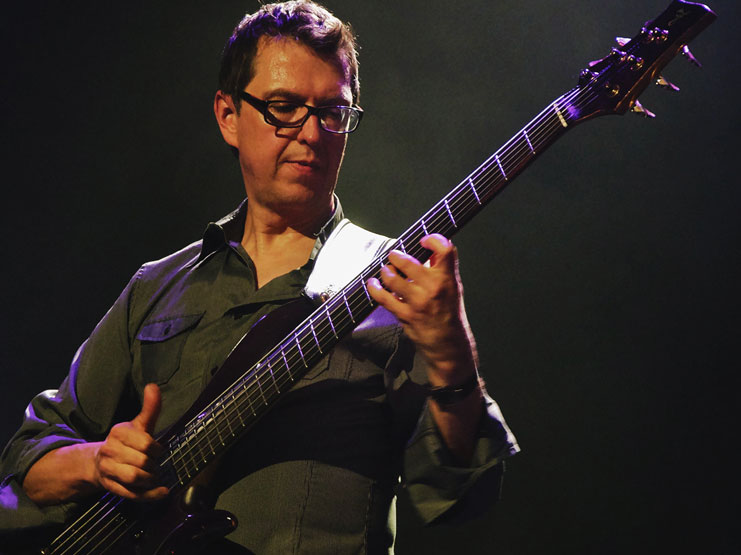INTERVIEW WITH
MICHEL VALLÉE
MORSE CODE
MICHEL VALLÉE
MORSE CODE
Already well known as a legendary group in the prog rock scene of Québec, Morse Code’s career can be rightly split into two main phases: the first one is more psych and rock (that is to say the first two albums in english when the band was still called Morse Code Transmission) and the second one characterized by a dreamy and captivating progressive approach combined with the choice of the French language.
La marche des hommes (1975), Procréation (1976), Je suis le temps (1977) are thus really interesting albums with a magnificent sound and very fascinating textures inside a solemn epic which doesn’t renounce to wink at pop and rock. Michel Vallée’s bass impact on the sound outline of the band is remarkable due to the elegance and intensity of his playing according to the need; in addition to a classic Rickenbacker sound which is not to be forgotten. For those who are familiar with prog rock made in Québec, we can absolutely confirm the evidence of a specific and well-defined sound wrongly matched with french scene but provided with its own code.
After the triad of Francophone albums, Morse Code made a comeback with the album Code Breaker (1983), again in english and more commercial, and eleven years later was the turn of D’un autre monde oriented to an almost rock chanson approach with an ancient (neo) prog echo. This is a refined work and ironically not immediate, with unusually extreme and moments of surprising funky mood.
We are absolutely talking about an ensemble of the highest quality which confirms the goodness of Canadian prog scene over the years. The musicians of Morse Code also appear on some vintage gems in the name of Jacques Salvail (P'tit Bout De Langue Feeling, 1974) and of the iconic Jean Robitaille (Faix Des Beaux Reves, 1979).
The wonderful news is that the Label Return To Analog of Montréal is releasing in vinyl all their albums except the last two (which we hope that will be licenced very soon).
We were counting on recommending some specific tracks to listen to but really the whole Morse Code’s production should be explored with curiosity and astonishment.
We can’t help but mention the bass solo on “Des Hauts Et Des Ha!...” (truly amazing) from the album Procréation, anyway we insist that these are albums you should listen carefully from beginning to end, recalling with devotion a time when creativity, dream, convergence of the wide range of influences and the seduptive power of the bass sound were elements which could both coexist without any faults.
We leave you with our interview with the bassist Michel Vallée who told with us some months before Covid-19.
We were counting on recommending some specific tracks to listen to but really the whole Morse Code’s production should be explored with curiosity and astonishment.
We can’t help but mention the bass solo on “Des Hauts Et Des Ha!...” (truly amazing) from the album Procréation, anyway we insist that these are albums you should listen carefully from beginning to end, recalling with devotion a time when creativity, dream, convergence of the wide range of influences and the seduptive power of the bass sound were elements which could both coexist without any faults.
We leave you with our interview with the bassist Michel Vallée who told with us some months before Covid-19.
BMF: Let’s start from your beginnings. How did you come to electric bass? Which were your first musical influences?
MICHELLE VALLÉE: I began in music at a very young age (six). I started to play accordion, piano, guitar and finally bass when I formed my own band called Les Maîtres in ‘67 and to become Morse Code (Transmission) in ‘72… Everything began with the arrival of The Beatles… I bought my own Hofner bass. In ‘74 I found the right instrument, Rickenbacker 4001(1973)… It is still my best to me after all these years… I have to add that I also have a Steinberger XP 25(1987)…My first influences were: Beatles… Yes… Genesis…
MICHELLE VALLÉE: I began in music at a very young age (six). I started to play accordion, piano, guitar and finally bass when I formed my own band called Les Maîtres in ‘67 and to become Morse Code (Transmission) in ‘72… Everything began with the arrival of The Beatles… I bought my own Hofner bass. In ‘74 I found the right instrument, Rickenbacker 4001(1973)… It is still my best to me after all these years… I have to add that I also have a Steinberger XP 25(1987)…My first influences were: Beatles… Yes… Genesis…
BMF: Morse Code have reformed this year and this is great. Can you tell us about your current projects?
MV: Morse Code had a very good come back last spring with the show "Héritage" in Québec city, Montréal, Sherbrooke, Dorval… The audience was great to us; it was kind of they missed us so much to our surprise as much as we missed them. Every show was an event. So we decided to go for more by visiting Saguenay on november 3.
BMF : I would like to ask you a specific question about the progressive scene in Québec... extremely interesting. Can you tell us about those years of development of this scene? Do you think that the Canadian progressive scene is still relatively little known?
MV: Québec has always been a well-known place for progressive rock…British band (Genesis, Gentle Giant, Yes etc…) were testing their shows with Québec audience in the ‘70s. Till today, all the progressive shows that come to Québec are very well received and there are more and more progressive bands from Québec… The progressive rock in Québec is alive and well.
MV: Morse Code had a very good come back last spring with the show "Héritage" in Québec city, Montréal, Sherbrooke, Dorval… The audience was great to us; it was kind of they missed us so much to our surprise as much as we missed them. Every show was an event. So we decided to go for more by visiting Saguenay on november 3.
BMF : I would like to ask you a specific question about the progressive scene in Québec... extremely interesting. Can you tell us about those years of development of this scene? Do you think that the Canadian progressive scene is still relatively little known?
MV: Québec has always been a well-known place for progressive rock…British band (Genesis, Gentle Giant, Yes etc…) were testing their shows with Québec audience in the ‘70s. Till today, all the progressive shows that come to Québec are very well received and there are more and more progressive bands from Québec… The progressive rock in Québec is alive and well.
BMF: I am convinced that even today, the role of bass in progressive rock is underestimated by many ... if we think that the genre has produced Chris Squire, Pekka Pohjola, Richard Sinclair, the same Mike Rutherford, criminally underrated ... What is your opinion about it? Who are your favorite progressive rock bass players?
MV: Bass of any kind of music always been understimated… But I think that bass in progressive music is more of a very important part of the songs and the music being as it is. Every instrument is also very important… They all becoming ‘’leads’’ instead of being in the back like in the pass backing the singer… That’s why bass has a very important role and in prog music it’s becoming a lead instrument with its different ‘’run’’ and melody… Chris Squire is my best! He was able to bring such nice & strong run and could bring also very nice bass melody…
MV: Bass of any kind of music always been understimated… But I think that bass in progressive music is more of a very important part of the songs and the music being as it is. Every instrument is also very important… They all becoming ‘’leads’’ instead of being in the back like in the pass backing the singer… That’s why bass has a very important role and in prog music it’s becoming a lead instrument with its different ‘’run’’ and melody… Chris Squire is my best! He was able to bring such nice & strong run and could bring also very nice bass melody…
BMF : The Morse Code albums are beautiful and perfectly combine a rock approach with a typical prog sensitivity... In Europe, Morse Code is a cult band also for this particularity and there is a great demand for reissues. Do you foresee there will be reprints, also on vinyl?
MV: You can get the first and second album (Morse Code Transmission 1 & 2) imported from Germany; La Marche des Hommes; Procréation & Je suis le temps with Prog-Québec.
Code Breaker with i-Tune and we are planning to print D’un Autre monde…Some of them will be also on vinyl…
MV: You can get the first and second album (Morse Code Transmission 1 & 2) imported from Germany; La Marche des Hommes; Procréation & Je suis le temps with Prog-Québec.
Code Breaker with i-Tune and we are planning to print D’un Autre monde…Some of them will be also on vinyl…
BMF: Have you ever thought to record a solo album? You were so skilled also on the other instruments in addition to be able to sing…
MV: I never thought to record a solo album…But these days as Morse Code made a comeback, I started again to bring new songs…and as some of them will be for Morse Code and others could be for me…I will see!
BMF: Would you like to talk about your gear? And more generally what are the basses you have preferred during your career?
MV: I used first a Hofner bass that I liked because it was A)light B) I could have a very good heavy sound which I was looking for. My second was and always be my best: Rickenbacker 4001 1973, it was like feeling at home, I found my sound and it help me to improve my way to play and change my way to see bass… I felt that it was becoming a part of me…
I have also a Steinberger XP25 that I like very much… With the graphite neck, it is always in tune… It is a very well balance instrument… And I can have a very deap sound and of course if you had that low B…
MV: I never thought to record a solo album…But these days as Morse Code made a comeback, I started again to bring new songs…and as some of them will be for Morse Code and others could be for me…I will see!
BMF: Would you like to talk about your gear? And more generally what are the basses you have preferred during your career?
MV: I used first a Hofner bass that I liked because it was A)light B) I could have a very good heavy sound which I was looking for. My second was and always be my best: Rickenbacker 4001 1973, it was like feeling at home, I found my sound and it help me to improve my way to play and change my way to see bass… I felt that it was becoming a part of me…
I have also a Steinberger XP25 that I like very much… With the graphite neck, it is always in tune… It is a very well balance instrument… And I can have a very deap sound and of course if you had that low B…
BMF: What was and still is your approach to fretless bass? And what is your relationship with the double bass?
MV: I always thought that a fretless bass is more useful in jazz and soft music and I don’t see it much in rock music… I never tried a double bass so I cannot tell you…
BMF: Free download as well as digital platforms have killed both specialised stores and some kind of genres and musicians. Fortunately, prog music seems to be far away from that problem, as it can still counts on an hard-core of competent fans. What’s your opinion about this issue?
MV: Free download is just not good…We have to find a way to get any artists what belongs to them now that everybody can copy everything…If you take off to an artist the bread on the table, he’s gonna die! I think that we lost control of the market…
BMF: To paraphrase the well-known “desert island records” game, with no restriction on number and genres, would you like to list (or even to talk about) the most important records in your life?
MV: Sgt Pepper (Beatles) – Fragile (Yes) – Selling England by the pound(Genesis) – Secret World (Peter Gabriel)…
MV: I always thought that a fretless bass is more useful in jazz and soft music and I don’t see it much in rock music… I never tried a double bass so I cannot tell you…
BMF: Free download as well as digital platforms have killed both specialised stores and some kind of genres and musicians. Fortunately, prog music seems to be far away from that problem, as it can still counts on an hard-core of competent fans. What’s your opinion about this issue?
MV: Free download is just not good…We have to find a way to get any artists what belongs to them now that everybody can copy everything…If you take off to an artist the bread on the table, he’s gonna die! I think that we lost control of the market…
BMF: To paraphrase the well-known “desert island records” game, with no restriction on number and genres, would you like to list (or even to talk about) the most important records in your life?
MV: Sgt Pepper (Beatles) – Fragile (Yes) – Selling England by the pound(Genesis) – Secret World (Peter Gabriel)…
BMF: And finally, who are the bassists of the current scene whom you feel close to or you’re more curious about?
MV: I always love to listen Tony Levin…Very original bass player…Alain Caron is also quite a specialist…he plays bass like it is a guitar…He can bring nice melodies to the very deep sound rythm … He’s a natural…
MV: I always love to listen Tony Levin…Very original bass player…Alain Caron is also quite a specialist…he plays bass like it is a guitar…He can bring nice melodies to the very deep sound rythm … He’s a natural…

Luca De Pasquale-Manuela Avino2021
